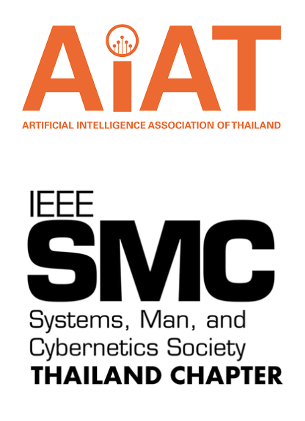The Success Factors for Digital Transformation to become a Smart Hospital: Case Study in Thailand
DOI:
https://doi.org/10.14456/jiist.2022.12Keywords:
Knowledge Management, Leadership skills, Technology acceptant,, Joint Commission InternationalAbstract
Technology has become a vital role in the healthcare industry as it helps to improve the efficiency and quality of care delivered to patients. This paper aims to identify the critical factors for the successes and failures in implementing a smart hospital in Thailand. We have conducted our research through semi-structured interviews with the top-managements of the hospital and experts in the smart hospital. Then we analyze our findings through the Thematic analysis to understand the critical factors within the industry. The results show that key factors, including the staff's readiness, leadership policy, epidemic, knowledge management, and collaboration among organizations, are essential to digitally transform toward the next smart hospital level.
References
Vermeir, P., Vandijck, D., Degroote, S., Peleman, R., Verhaeghe, R., Mortier, E.,... Vogelaers, D. (2015). Communication in healthcare: a narrative review of the literature and practical recommendations. Int J Clin Pract, 69(11), 1257-1267. doi:10.1111/ijcp.12686
Needleman, J., & Hassmiller, S. (2009). The Role Of Nurses In Improving Hospital Quality And Efficiency: Real-World Results. Health Affairs, 28(Supplement 3), w625-w633. doi:10.1377/hlthaff.28.4.w625
ENISA. (2016). Manual on government deficit and debt. Implementation of ESA 2010.
Darroch, J., & McNaughton, R. (2002). Examining the link between knowledge management practices and types of innovation. Journal of Intellectual Capital, 3(3), 210-222. doi:10.1108/14691930210435570
Liebowitz, J. (2001). Knowledge management and its link to artificial intelligence. Expert Systems with Applications, 20(1), 1-6. doi:https://doi.org/10.1016/S0957-4174(00)00044-0
Ljajić, S., Randjelović, D., & Pirsl, D. (2016). POWER OF KNOWLEDGE, GENERAL KNOWLEDGE MANAGEMENT STRATEGIES AND DEVELOPMENT OF RELEVANT MANAGERIAL COMPETENCES.
Martinsons, M. G., Davison, R. M., & Huang, Q. (2017). Strategic knowledge management failures in small professional service firms in China. International Journal of Information Management, 37(4), 327-338. doi:10.1016/j.ijinfomgt.2017.04.003
Pillania, R. K. (2008). Information technology strategy for knowledge management in Indian automotive components SMEs. Knowledge and Process Management, 15(3), 203-210. doi:10.1002/kpm.311
Wu, I., & Hu, Y.-P. (2012). Examining Knowledge Management Enabled Performance for Hospital Professionals: A Dynamic Capability View and the Mediating Role of Process Capability. J. Assoc. Inf. Syst., 13, 3.
Zaccaro, S. J. (2001). The nature of executive leadership: A conceptual and empirical analysis of success. Washington, DC, US: American Psychological Association.
Guzmán, V. E., Muschard, B., Gerolamo, M., Kohl, H., & Rozenfeld, H. (2020). Characteristics and Skills of Leadership in the Context of Industry 4.0. Procedia Manufacturing, 43, 543-550. doi:https://doi.org/10.1016/j.promfg.2020.02.167
Kearns, K., Livingston, J., Scherer, S., & McShane, L. (2015). Leadership skills as construed by nonprofit chief executives. Leadership & Organization Development Journal, 36, 712-727. doi:10.1108/LODJ-11-2013-0143
kalargyrou, v., & T.Pescosolido, A. (2012). .
Bass, B. M., & Avolio, B. J. (1993). TRANSFORMATIONAL LEADERSHIP AND ORGANIZATIONAL CULTURE. Public Administration Quarterly, 17(1), 112-121. Retrieved from http://www.jstor.org/stable/40862298
Bagozzi, R. (2007). The Legacy of the Technology Acceptance Model and a Proposal for a Paradigm Shift. J. AIS, 8. doi:10.17705/1jais.00122
Zuiderwijk, A., Janssen, M., & Dwivedi, Y. K. (2015). Acceptance and use predictors of open data technologies: Drawing upon the unified theory of acceptance and use of technology. Government information quarterly, 32(4), 429-440.
Zhou, T., Lu, Y., & Wang, B. (2010). Integrating TTF and UTAUT to explain mobile banking user adoption. Computers in Human Behavior, 26(4), 760-767. doi:https://doi.org/10.1016/j.chb.2010.01.013
Venkatesh, V., Morris, M. G., Davis, G. B., & Davis, F. D. (2003). User Acceptance of Information Technology: Toward a Unified View. MIS Quarterly, 27(3), 425-478. doi:10.2307/30036540
Prayoonphan, F., & Xu, X. (2019). Factors Influencing the Intention to Use the Common Ticketing System (Spider Card) in Thailand. Behavioral sciences (Basel, Switzerland), 9(5), 46. doi:10.3390/bs9050046
Nillos, B. E. (2016). Performance Expectancy, Effort Expectancy, Social Influence and Facilitating Conditions are Factors that Influence Rural Health Workers in the Use of Wireless Access for Health and Perception of Behavior of their Pregnant Patients. JPAIR Multidisciplinary Research, 24. doi:10.7719/jpair.v24i1.376
Shafaghat, T., Jabbari, A., Kavoosi, Z., Ayoubian, A., & Rahimi Zarchi, M. K. (2014). The Capabilities of Iranian Hospitals in Attracting Medical Tourists; Based on Joint Commission International: A Case Study of Shiraz Hospitals. International Journal of Travel Medicine and Global Health, 2(1), 5-9. Retrieved from http://www.ijtmgh.com/article_33264.html
Saut, A. M., Berssaneti, F. T., & Moreno, M. C. (2017). Evaluating the impact of accreditation on Brazilian healthcare organizations: A quantitative study. Int J Qual Health Care, 29(5), 713-721. doi:10.1093/intqhc/mzx094
Alkhenizan, A., & Shaw, C. (2011). Impact of accreditation on the quality of healthcare services: a systematic review of the literature. Ann Saudi Med, 31(4), 407-416. doi:10.4103/0256-4947.83204
Braun, V., & Clarke, V. (2006). Using thematic analysis in psychology. Qualitative Research in Psychology, 3(2), 77-101. doi:10.1191/1478088706qp063oa
Vakola, M. (2014). What's in there for me? Individual readiness to change and the perceived impact of organizational change. Leadership and Organization Development Journal, 35. doi:10.1108/LODJ-05-2012-0064
Moro Visconti, Roberto and Martiniello, Laura, Smart Hospitals and Patient-Centered Governance (March 21, 2019). Moro Visconti, R., & Martiniello, L. (2019). Smart hospitals and patient-centered governance. Corporate Ownership & Control, 16(2), Available at SSRN: https://ssrn.com/abstract=3357473
Hsiao, J. L., Chang, H. C., & Chen, R. F. (2011). A study of factors affecting acceptance of hospital information systems: a nursing perspective. The journal of nursing research: JNR, 19(2), 150–160. https://doi.org/10.1097/JNR.0b013e31821cbb25
Evjen, T. Å., Hosseini Raviz, S. R., Petersen, S. A., & Krogstie, J. (2020). Smart Facility Management: Future Healthcare Organization through Indoor Positioning Systems in the Light of Enterprise BIM. Smart Cities, 3(3), 793-805. Retrieved from https://www.mdpi.com/2624-6511/3/3/40




